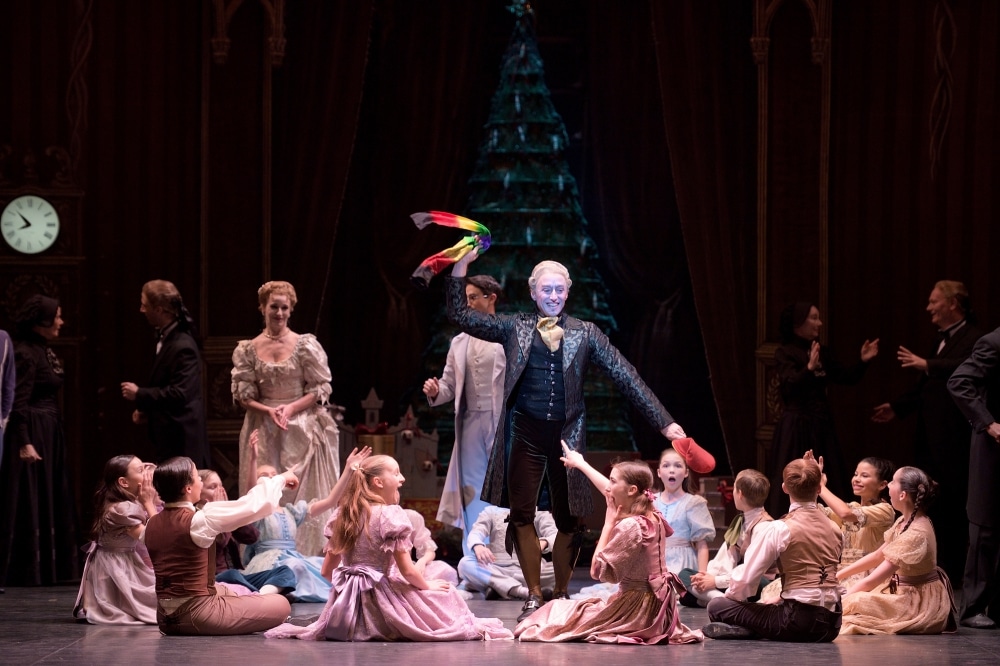Let’s play
Lots of families have traditions that they protect and practise every year. Playing Monopoly, or getting in touch with your inner Dali at the annual Pictionary competition with your grandparents, is as traditional for some as roast turkey and stuffing at Christmas.
With the ever-present screen (in the form of mobile phones, tablets and TVs wired to Fortnite) it’s perhaps more important than ever to revive or restart old family traditions such as charades, the post-it note game or even the home produced pantomime . . .
In our house, my daughter Zoë and her friend Lottie were so enchanted by Tchaikovsky’s Nutcracker story, they started an annual performance of the ballet, complete with a dancing Rudolf and a manic Santa.
The girls take great delight, on the last day of term, to perform the whole story, using the French windows and curtains as their changing area and acting and dancing the play in front of the Christmas tree.
Our tiny lounge has played host to this extravaganza twice now, and despite it being a bit of a squash and a squeeze, we’ve managed to cram in together to watch what’s fast becoming a magical annual treat.
Preparations are in full swing now for this year’s performance where they’ll be joined by another friend, Arabella, and we’ve been promised a host of new characters…
The history of parlour games
On Christmas Eve each year, friends of ours drag willing participants out of the local pub and invite them home to act out the nativity. They’re given a script and a makeshift costume and everyone throws themselves into their respective roles with vigour. And while this might sound less traditional than watching the school nativity, Christmas plays at home were actually initiated by none other than King James 1 himself in the 17th century.
In the early 1600s he introduced the tradition of a play to his court at Christmas. Actors were assembled in the Great Hall at Hampton Court Palace (among them a certain William Shakespeare) and A Midsummer Night’s Dream was performed on New Year’s Day. King Lear was performed on Boxing Day in 1606 in the Great Hall and Twelfth Night in1618 and 1623.
Queen Elizabeth and her sister Princess Margaret were very fond of treading the boards at Christmas time and would perform pantomimes for their parents during the festive season at Windsor Castle. They took it upon themselves to write and perform the nativity and also their own versions of Aladdin and Old Mother Red Riding Boots.
Now do it yourself
We are lucky in this county to have so many pantomimes and Christmas plays to draw inspiration from. It’s also not too difficult to take the train in to London to see the English Ballet’s Nutcracker, which runs across the Christmas season at The Coliseum in the West End.
However, if you don’t have plans to see a panto this year, then why not put one on yourself at home? It doesn’t take much to dance like the Sugar Plum Fairy in your lounge, or transform your dad into the Wise Man. As many a mum can attest, a tea towel and a piece of cord does a shepherd make, and your cracker hat can double as a king’s crown. If you’re not up for performing the nativity, then your own take on Aladdin or Babes in The Wood might even extract a teenager or two from their Wiis or PS5s this Christmas Day.
Try these traditional Christmas games:
Charades: This is an absolute must at Christmas time. We like to play using a theme, but then anything goes with charades.
Lie Detector: This can be played straight after the Christmas meal when you’re still sitting at the table. Taking it in turn, each player volunteers three pieces of information about themselves; two must be true and one must be false. The other players get five minutes to interrogate the player, asking questions about the statements and trying to ascertain which is true or false. Once the group has reached a consensus, the player must tell the group which statement was a lie.
Dr Dr: One of the group is nominated as the doctor. He or she must leave the room then the remaining members of the group decide what ‘ailment’ they are suffering from. The doctor must return and deduce the condition from the answers to his or her questions.








